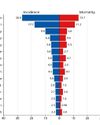
PCR is a laboratory (in-vitro) technique that is employed Pfor amplifying a targeted portion of DNA. This technique is a cell-free method utilized to synthesize several identical copies of a gene or DNA of interest. Thus, it is a very essential tool in a molecular biology laboratory synonymous to a photocopier as a basic requirement in an office. First, we will outline the requirements for a standard PCR reaction – the following will be needed: DNA polymerase enzyme, magnesium chloride (MgCl2), nucleotides, primers, nuclease free water, target DNA template to be amplified and a PCR machine. The PCR reaction mechanism is simple and starts with an initial Denaturation where the double-stranded DNA is heated to separate the strands (1st step) this allows for the primers to attach to the now single stranded DNA (2nd step). After the primers align to the DNA strand, the DNA polymerase enzyme extends the primers (3rd step) which results into two identical copies of the original DNA template. These three steps are repeated over a series of temperatures and times a single complete process of the three combined is known as an amplification cycle. It is important to optimize every step of the cycle to the DNA template and the set of primers being used. The cycles can be repeated as many times as needed, however, on average a standard PCR is run for around 30 to 40 times after which the amplified product is then analyzed. The polymerase chain reaction is used to amplify a targeted DNA of interest for downstream experimental purposes; and it has also found immense use in detection of pathogenic DNA as well as other applications in genetic testing. PCR is a very sensitive technique as tiny volumes of a single reaction are required, as such it is recommended that a master mix is prepared if there are many reactions.
Denne historien er fra September - October 2020-utgaven av Scientific India.
Start din 7-dagers gratis prøveperiode på Magzter GOLD for å få tilgang til tusenvis av utvalgte premiumhistorier og 9000+ magasiner og aviser.
Allerede abonnent ? Logg på
Denne historien er fra September - October 2020-utgaven av Scientific India.
Start din 7-dagers gratis prøveperiode på Magzter GOLD for å få tilgang til tusenvis av utvalgte premiumhistorier og 9000+ magasiner og aviser.
Allerede abonnent? Logg på

Building world's 1st pyramid
In a preprint study published this summer, researchers proposed that ancient Egyptians built the world's first pyramid the 4,700-year-old Step Pyramid of Djoser, which sits on Egypt's Saqqara plateau using a \"modern hydraulic system\" powered by a long-gone branch of the Nile River.

Climate change arms the world, ovarian cancer pulls the trigger.It's time we disarm them both
Climate change, driven by human activities, leads to environmental changes such as rising temperatures, altered weather patterns, and increased pollution.

Climate Change Added 18 mph to Hurricane Wind Speeds over Past 5 Years
High ocean temperatures caused by global warming boosted maximum intensities for most storms between 2019 and 2023, as well as for every 2024 hurricane.

How Indian Vulture Decline Led to 500,000 Deaths in 5 Years
Once a common sight across India, vultures were abundant scavengers, often seen circling landfills in search of carcasses.

Understanding Monkeypox: Insights and Implications
Monkeypox, a viral zoonotic disease, has gained significant attention in recent years due to its re-emergence and sporadic outbreaks globally.

AI predicts that most of the world will see temperatures rise to 3°C much faster than previously expected
Three leading climate scientists have combined insights from 10 global climate models and, with the help of artificial intelligence (AI), conclude that regional warming thresholds are likely to be reached faster than previously estimated.

Infrared Radiation: A New Player In Mosquito Host-Seeking
The sound of mosquitoes is all around us when the sun sets and the air gets warm and sweltering.

Fish Oil May Benefit to Cure Alzheimer's, disorder: new findings
The benefits of fish and fish oil consumption are well-known in medical science as fish is considered a precious food resource that provides sufficient nutrition to humans.

A new class of antivirals could help prevent future pandemics
The arrival of Paxlovid in December 2021 marked another turning point in the COVID-19 pandemic an effective antiviral that has since successfully treated millions.

Turning carbon emissions into methane fuel
Chemists have developed a novel way to capture and convert carbon dioxide into methane, suggesting that future gas emissions could be converted into an alternative fuel using electricity from renewable sources. Carbon dioxide (CO2) is a greenhouse gas that accounts for a large part of Earth's warming climate, and is produced by power plants, factories and various forms of transportation.